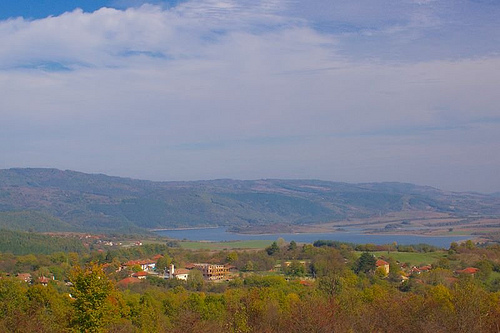Bulgaria is a haven of historically and architecturally significant sites. With a varied terrain ranging from the Black Sea to a mountainous interior, the country has always been a popular destination for tourists. Expats too find the Bulgarian lifestyle to be rich, diverse, and fulfilling. The local culture bears Ottoman, Persian, Greek and Slavic influences, and Bulgarians take great pride in their traditions.Of course, along with the excitement of a new culture come a few pitfalls – it’s easy to make a faux pas when you’re just beginning to discover how things are done in your new home. There are many customs that are unique to Bulgaria, and knowing the basics of Bulgarian culture will not only enable expats to integrate easily, but will also help to avoid causing any unnecessary offence to locals.
We asked Rebecca from Eat Stay Love Bulgaria what expats can do to avoid offending the locals.
“If you’re not familiar with Bulgarian culture you may find the people to be rude at first. They’re not rude, they’re actually very friendly, however they are very direct and honest. As a Brit this is a little difficult to get used to as we are always much more diplomatic with our words. I’d say when you’re in Bulgaria, you need to say exactly what you mean to avoid any misunderstandings!”
Here are a few other tips that may help you to settle in better.
Greetings
The family is held in high esteem in Bulgarian society. Family values play an important role in daily life and society. The elders of the family are treated with respect. If you are being introduced to a Bulgarian’s family, ensure that you greet the family warmly, especially the senior members. The traditional way of greeting in Bulgarian society is with a formal handshake. Remember to greet and shake hands with the most senior family members first. Men and women do kiss on the cheeks as a form of greeting, but it is advisable to allow your host to initiate this type of greeting. Men are addressed as ‘Gospodin’ (Mr.) and women as ‘Gospozha’ (Mrs.), followed by the surname. Usually only family members and friends use the first names to address each other, along with maybe a hug and a kiss on the cheek. Again, wait for your host to determine if it is appropriate to use this less formal type of greeting.
The Church
In Bulgarian society and culture, the Bulgarian Orthodox Church has occupied a central role even during the years of Communist rule. Some of the churches are open to the general public. The Boyana Church in the capital city of Sofia is one such place. Foreigners are expected to show respect and sensitivity at churches. If you are visiting a church either alone or with Bulgarian friends, make sure to dress conservatively. Bulgarian churches are beautifully constructed, but before taking any pictures, remember to ask if it is allowed.
Dining
During your stay in Bulgaria, you are most likely to be invited to a local’s home for a meal. There are a few rules of social etiquette that pertain to dining.
A gift for the host or hostess always makes a good impression. This could be a simple bouquet of flowers or a bottle of wine. If the whole family is present at the meal, wait for senior members to be served first. Your host or hostess may invite you to begin, since you are the guest. However, it is considered polite to insist that the elderly family members begin.
Bulgarian meals are not too formal, and there is a lot of chatting and laughing around the table. Enjoy being part of the gathering, but try to remember a few basic rules, such as keeping your elbows off the table and allowing your hands to be visible. Taking a second helping indicates that you have enjoyed the food and also that your host or hostess has provided the food in abundant amounts. It’s a good idea to accept a smaller portion initially, and then proceed with a second helping.
Business Etiquette
Business meetings in Bulgaria are formal affairs. You may be expected to dress conservatively for such events. Bulgarians can be quite direct and clear when conducting business. Meetings often continue beyond the allocated time. It is expected that you get to know the people concerned before conducting business with them. This important step of relationship building takes place in most business settings in Bulgaria. The first meeting usually just serves the purpose of introducing everyone, while the following meeting is where the actual business discussions take place.
If you are aware that Bulgarian may be spoken at the meetings, let your counterparts known that you will be hiring an interpreter. Remember to maintain the atmosphere of formality throughout the meeting. Bulgarians sometimes deflect topics and speak in a roundabout manner about topics they are unsure of sharing at that moment. If you feel direct answers are not forthcoming, try presenting the question in a different fashion.
And what are the most common misconceptions expats have when they’re planning a move to Bulgaria? Rebecca elaborates:
“Some people I’ve spoken to have been nervous about moving to Bulgaria as they don’t have any idea how life is here. For example, in Sofia we have everything, including many huge shopping malls and plenty of trendy bars and clubs. I think this surprises people! Obviously village life would be quite different but the cities are very well developed. I also feel very safe in Bulgaria and this is another concern that foreigners shouldn’t worry so much about. Of course there’s crime, there is crime in every country but I certainly don’t feel at any greater risk here than I did in the UK.”
Have you moved to Bulgaria? What surprised you about living there? Did you find any of the local customs confusing? Let us know in the comments.

